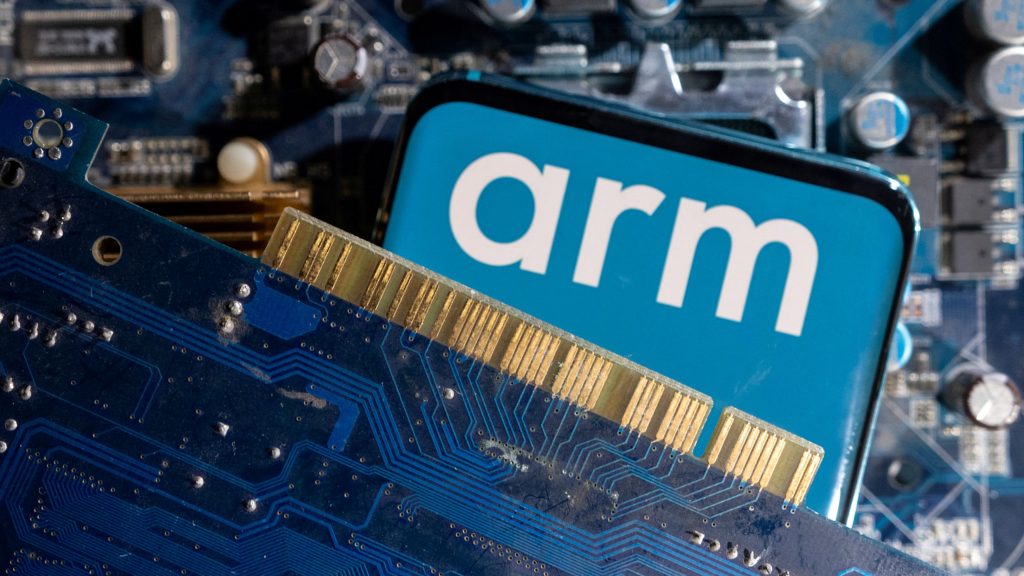Arm Plans To Launch AI Chips In 2025, Nikkei Reports

SoftBank Group’s Arm Holdings plans to develop artificial-intelligence (AI) chips, seeking to launch the first products in 2025, Nikkei Asia reported on Sunday.
UK-based Arm will set up an AI chip division and aim to build a prototype by spring 2025, the report said. Mass production will be handled by contract manufacturers and is expected to start in the autumn of 2025, Nikkei Asia said.
Arm will pay for initial development costs, which may total hundreds of billions of yen, with SoftBank also contributing, the report said.
Once a mass-production system is established, the AI chip business could be spun off and placed under SoftBank, the newspaper said, adding that SoftBank is already negotiating with Taiwan Semiconductor Manufacturing Corp (TSMC) and others over manufacturing, looking to secure production capacity.
Arm, SoftBank and TSMC declined to comment on the Nikkei report.
The British chip designer, which licenses its chip designs and earns funds through royalties, has been expanding into the data-centre market, where operators are looking to build their own chips to power new AI models and reduce their reliance on dominant supplier Nvidia.
Bets that Arm will benefit from a surge in AI computing have doubled the chipmaker’s share price since its initial public offering last September, giving it a market value of more than $100 billion.
SoftBank is expected to slip back into the red when it reports earnings on Monday. Investors are eagerly awaiting clues about new growth investments as the company has ample liquidity and can monetise its huge holding in Arm, whose share price roughly doubled in February on excitement over AI.
(Reporting by Gursimran Kaur in Bengaluru and Anton Bridge in Tokyo;Editing by Matthew Lewis and Tomasz Janowski)




